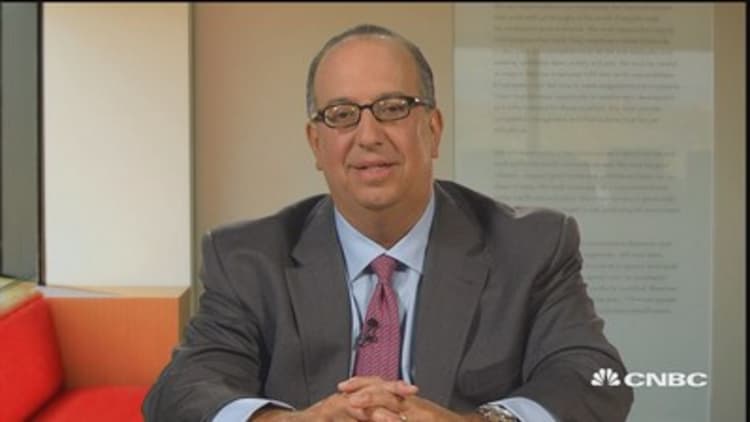
Johnson & Johnson reported a better-than-expected rise in quarterly sales, helped by strength in its pharmaceuticals business.
The company's shares were up 2 percent in premarket trading on Tuesday. As of Monday's close, they had gained about 20 percent this year.
J&J, the first major U.S. drugmaker to announce quarterly earnings, raised its 2016 sales forecast to a range of $71.5 billion to $72.2 billion from $71.2 billion to $71.9 billion.
Sales of the maker of medical devices, pharmaceuticals and personal care products rose 3.9 percent to about $18.5 billion from $17.8 billion, a year earlier.
Johnson & Johnson Chief Financial Officer Dominic Caruso said Tuesday the company has developed a broad-based approach that allows it to grow in an evolving and dynamic health care environment.
He told CNBC's "Squawk Box" the company is gaining market share in consumer products and seeing accelerated growth in in its medical devices business, which is currently undergoing a restructuring. Momentum continues in its pharmaceuticals division, as well, he said.
Pharmaceutical sales rose 8.9 percent to $8.6 billion due to increased demand for its Imbruvica cancer drug and Xarelto blood thinner.
Sales of Remicade, J&J's biggest product, rose 6.7 percent to $1.78 billion.
While the company's patent for Remicade expires in September 2018, Caruso said J&J does not anticipate any early launch of biosimilars, which will eventually compete with the product.
However, the company's net earnings fell to $3.997 billion, or $1.43 per share, from $4.516 billion, or $1.61 per share.
Excluding special items, the Band-Aid maker earned $1.74 per share.
Analysts on average had expected a profit of $1.68 per share on revenue of $17.98 billion, according to Thomson Reuters I/B/E/S.
— CNBC's Tom DiChristopher contributed to this report.

